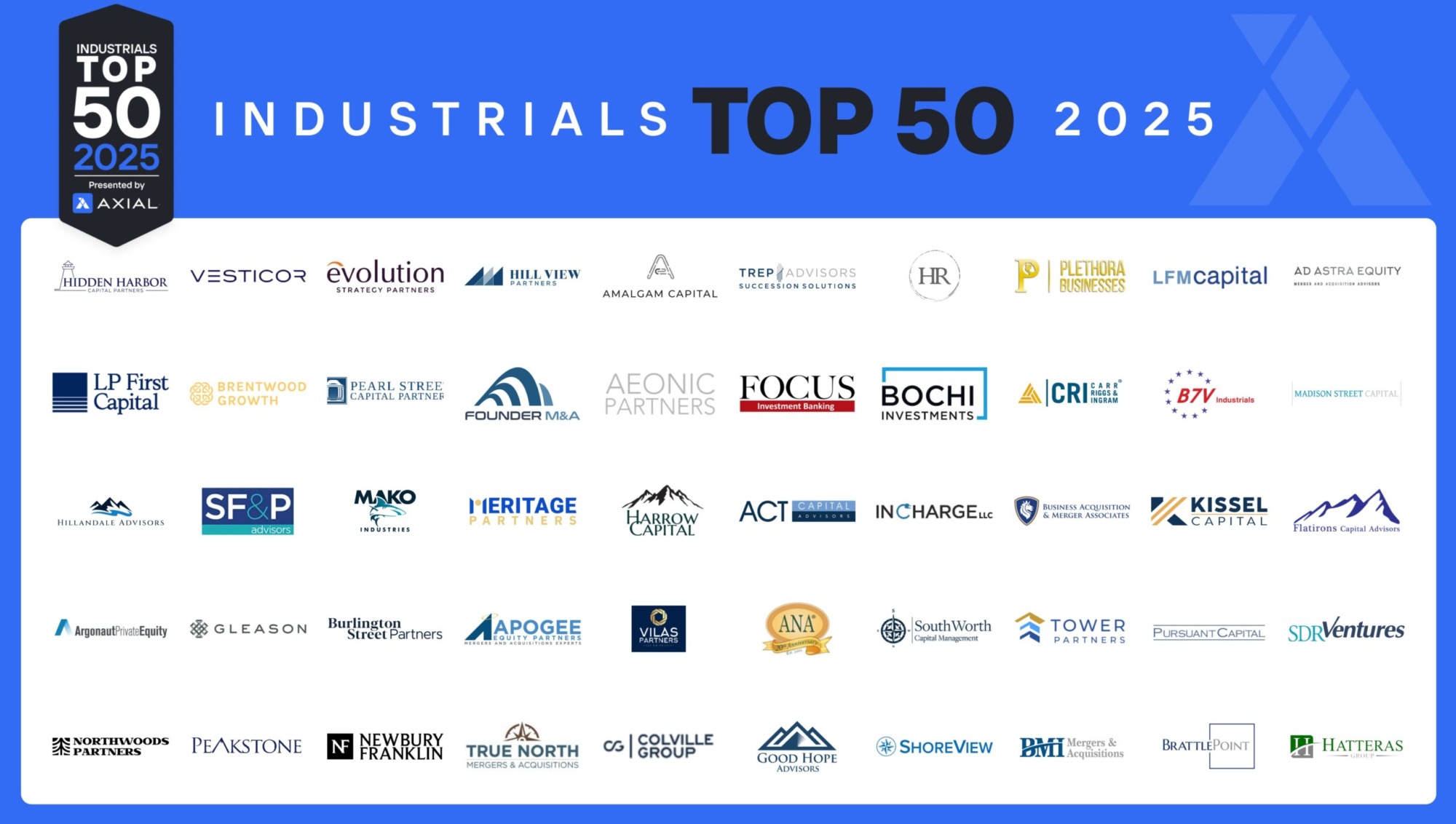
The Top 50 Lower Middle Market Industrials Investors & M&A Advisors [2025]
Industrials remains the most dominant sector in Axial deal flow, representing more than 25% of all deals brought to market…
It’s well known that the current M&A boom is on pace to match that of 2007, with volume surpassing $1 trillion in the first half of 2015. As the media follows the mega deals in real time, we’ve been watching the most celebrity mergers unfold with the drama reminiscent of your high school prom.
What started as an innocent combination of cheap debt, a ticking clock on low interest rates, and a relatively stable economy has slowly evolved into a monster haunting every deal professional and company executive: the fear of missing out (FOMO).
FOMO has long been a mainstay of the private equity industry — investors simply can’t expect to see every potential deal that passes through. To avoid the sickening feeling of waking up to great deal closed by a competitor unseen to him, the deal professional’s M.O. is to ensure a consistent and quality stream of deal flow.
Particularly for those who invest in small and mid-sized companies, it’s important to never be comfortable with the sources of this deal flow. For investors who are missing out on deals and still relying on the same banking and referral contacts they have for years, it quickly becomes a game of who don’t you know.
It seems; however, that this round of M&A frenzy is inspiring a level of panic in both deal professionals and company executives that surpasses the norm, so the question is why?
Deal professionals sitting on dry powder
For deal professionals, the pressure to deploy capital certainly contributes to the fear of missing out in 2015. Private equity funds are sitting on $1.2 trillion as of December 2014, up 11.9% from 2013. As fund cycles near their ends, LPs are looking to private equity professionals to invest in companies likely to yield the highest returns.
It doesn’t help that the number of PE firms is up 143% since 2000, as more firms than ever compete for a still-limited number of companies on the market. The combination of the dry powder phenomenon and an increasingly competitive industry makes for a lethal dose of FOMO in the deal professional arena. All of a sudden, that press release announcing a transaction closed by your competitor looks less like a minor missed opportunity and more like your worst nightmare.
For company executives, the consensus is eat or be eaten
Make no mistake–the fear of missing out appears to be sweeping the executive landscape with equal fervor. Most notably, the consolidate scramble is playing out in the healthcare, pharmaceutical, and telecommunication industries. We’ve seen multiple rounds of courting in mega-deals between high level insurance companies, and big pharma looks to capitalize on economies of scale by buying up a number of smaller players.
While the media coverage is often limited to the most glamorous of deals, the middle market appears to be experiencing a FOMO moment of its own. In the upper mid-market ($100M+ in revenues), the number of firms currently involved in M&A is up significantly from last year. As the clock ticks on currently low interest rates, private companies are increasingly abandoning pure organic growth strategies and pursuing acquisitions. The consensus is eat or be eaten, because it’s yet to be determined who will be left standing when the dust settles.
Does anyone benefit?
As FOMO sweeps executives and professionals across industries and regions, one might ask: who’s getting the most out of our nagging fears?
As CEOs become more proactive and deal professionals revisit their rolodexes, it looks like M&A advisors might be the winners in this period of frenzy. Companies in a place to pursue a transaction aren’t going to wait for the golden opportunity to come knocking and are getting more proactive about finding the best advisor to help them close deals. Many CEOs also recognize the importance of hiring intermediaries to help add value in the years leading up to a sale. Along the same vein, deal professionals are increasingly rethinking their relationships with the big banks as boutique shops and one-man advisories take a greater share of the deals.
The numbers are in and compared to 1Q 2015, investment banks saw an 18% increase in fees for M&A transactions.
An uncertain future
At the very core of the FOMO phenomenon is a hope that the M&A craze will settle to more manageable levels. Uncertainty about potential regulatory changes certainly contributes, as the FTC deliberates on mega-deals and rejects a few. There’s also the issue of current global volatility, as Greece’s negotiation might spell changes for the Eurozone, and China’s stock bubble appears to be deflating. It seems the only thing we can say with any certainty is how imperative it feels to close your next deal — right now.
